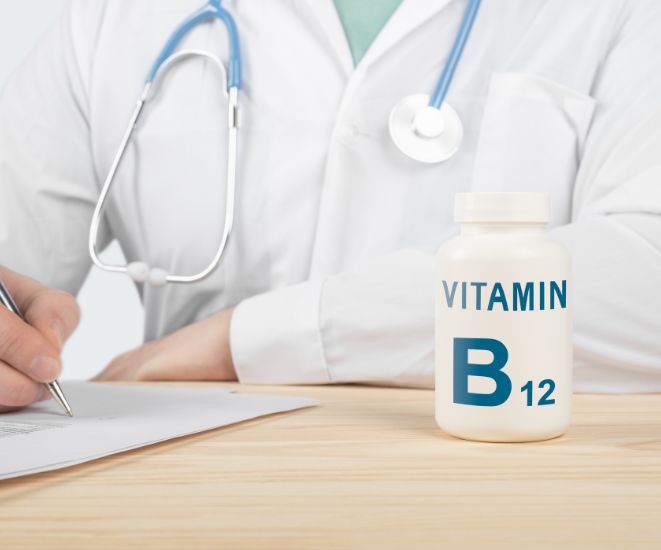Top Vitamins for Men
Men's health is important at every stage of life. Proper nutrition, including vitamins, plays a big role in keeping the body strong and healthy.
1. Vitamin D
Vitamin D is often called the "sunshine vitamin" because our bodies make it when we are in the sunlight. It is important for strong bones and teeth, and it helps the body absorb calcium. Vitamin D also supports the immune system, which helps fight off illnesses.
Many men do not get enough vitamin D, especially during winter or if they spend a lot of time indoors. Low levels of vitamin D can lead to weakness and fatigue. You can get vitamin D from sunlight, fatty fish (like salmon), fortified foods (like milk and cereal) and supplements.
2. Vitamin B12
Vitamin B12 is important for producing red blood cells and maintaining a healthy nervous system. It helps keep your energy levels up and reduces feelings of tiredness. This vitamin is found in animal products like meat, eggs and dairy. Vegetarians or vegans may have a harder time getting enough B12 and might need to take a supplement.
Men over the age of 50 should pay special attention to their B12 levels because the body's ability to absorb this vitamin decreases with age. A lack of B12 can lead to weakness, fatigue and nerve problems.
3. Vitamin C
Vitamin C is a powerful antioxidant that helps protect the body from free radicals. It supports the immune system, helping you stay healthy. It is also important for collagen production, which helps keep skin, cartilage and bones strong.
Men can get vitamin C from fruits and vegetables, such as oranges, strawberries, kiwi, bell peppers and broccoli. If you do not get enough from food, you might consider a vitamin C supplement.
4. Vitamin E
Vitamin E is another antioxidant that helps protect cells from damage. It is important for a healthy immune system and may help improve skin health. Some studies suggest that vitamin E might also play a role in reducing the risk of heart disease.
Good sources of vitamin E include nuts (like almonds), seeds, spinach and avocado. You can also find vitamin E in supplement form.
5. Vitamin A
Vitamin A is crucial for good vision, immune function and skin health. It helps maintain healthy eyes and can reduce the risk of night blindness. Vitamin A is also important for reproductive health.
You can find vitamin A in foods like carrots, sweet potatoes, spinach and animal products like liver and dairy. If you do not get enough from your diet, supplements are available.
6. Folate (Vitamin B9)
Folate is important for DNA synthesis and cell division. It helps produce red blood cells and is especially important for men who are trying to conceive, as it can improve sperm health.
You can get folate from foods like leafy greens, beans, peas and fortified cereals. A folate supplement may be beneficial if you are not getting enough from food.
7. Magnesium
While not a vitamin, magnesium is an essential mineral that many men do not get enough of. It plays a role in muscle function, energy production and heart health. Magnesium can also help reduce feelings of stress and anxiety.
Good sources of magnesium include nuts, seeds, whole grains and green leafy vegetables. Supplements are available if you find it hard to meet your daily magnesium needs.
8. Zinc
Zinc is another essential mineral that supports immune function and helps heal wounds. It is important for testosterone production and reproductive health in men. A zinc deficiency can lead to a weakened immune system and low testosterone levels.
You can find zinc in foods like meat, shellfish, beans, nuts and whole grains. If your diet is lacking in these foods, a zinc supplement might be a good option.
Maintaining Good Health
Vitamins and minerals are vital for maintaining good health in men. A balanced diet that includes a variety of fruits, vegetables, whole grains and lean proteins can help ensure you get the necessary nutrients. However, if you find it challenging to meet your vitamin needs through diet alone, supplements can be beneficial.
Before starting any new vitamin or supplement, it's important to talk to a healthcare provider. They can help you determine which vitamins are right for you and what dosage you may need. With the right vitamins, you can support your health and well-being at every stage of life.
If you're suffering from PCOS, here are some great supplemental options.
